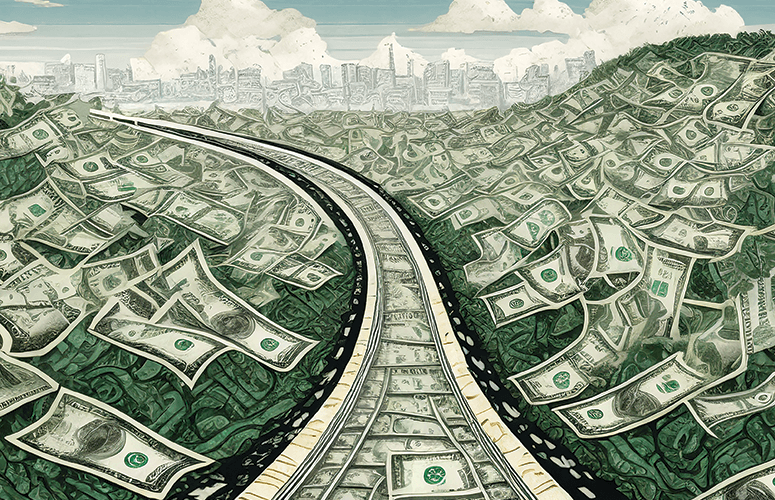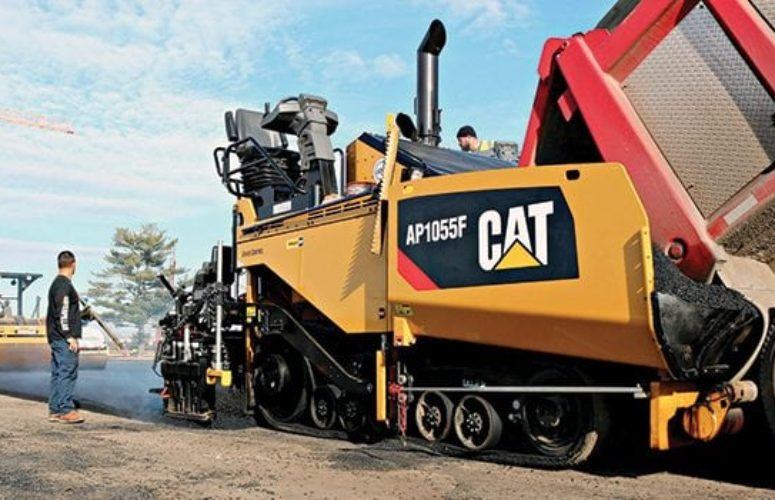
Funding NJ’s Infrastructure
The Transportation Trust Fund is key to keeping the state moving.
By Jim Pytell, Managing Editor On Apr 3, 2024In a state as densely populated as New Jersey, maintaining a solid transportation infrastructure is vital; not only to allow the state’s 9.3 million people to get where they need to go, but also to ensure that the economy can flourish. Any shutdown or delay on a major roadway, train tunnel or bridge due to crumbling infrastructure leads to frustrated commuters, longer travel, delayed emergency services, and billions of dollars lost in economic impact.
Evidently, properly funding our state’s infrastructure is paramount.
The New Jersey Department of Transportation (NJDOT) and NJ TRANSIT prepare a Transportation Capital Program annually which lists all projects that can be funded from the Special Transportation Fund – more commonly known as the Transportation Trust Fund (TTF). This project list is submitted each year on March 1 to the Legislature for review and approval. The Legislature makes any necessary changes and provides its final decisions in the Appropriation Act which takes effect July 1 (through June 30) each year.
The FY 2017, FY 2018, FY 2020, and FY2022 appropriations authorized TTF programs of $2 billion annually.
June 30 Renewal Deadline Looms
The TTF must be renewed by June 30 of this year. If it isn’t, transportation-infrastructure spending could stall as it did in 2016 when then-Gov. Chris Christie could not reach an agreement with state lawmakers. Eventually, an agreement was made that raised the gas tax by 22.6 cents, and renewed the TTF for another eight years as part of a broader $16 billion transportation-spending initiative.
Editor’s Note: On March 26, Gov. Phil Murphy signed legislation renewing the State’s Transportation Trust Fund (TTF) for five more years. The law includes an annual electric vehicle fee of $250 (with increases of $10 per year in each of the remaining four years), and will raise the gas tax by nearly 2 cents every year for the next five years.
“TTF is important for many reasons,” says Associated Construction Contractors of New Jersey (ACCNJ) Chief Executive Officer Jack Kocsis Jr. “It not only creates work opportunities for contractors and skilled, trained craftworkers, most of whom reside and raise their families in New Jersey, but it also maintains and improves our state’s infrastructure. The TTF is vital to the overall economic stability and quality of life for all of New Jersey’s residents and taxpayers.”
Kocsis adds that the TTF is not just another tax, or something that increases the cost of gas each time you fill up your car.
“It’s money that is dedicated to projects that repair, maintain and improve our roads, highways and bridges throughout the state. Without this funding, the roads and infrastructure we rely on every day would not get the upkeep and repairs that they often need,” he explains.
Gas Tax and EVs
Christopher Emigholz, chief government affairs officer at the New Jersey Business & Industry Association (NJBIA), says that two key things to look out for in an updated TTF include the size of the gas tax and a potential electric vehicle (EV) fee.
When it comes to the size of a potential gas tax increase, Emigholz says if there is a raise, he expects it to be a small one, especially when compared to the 23 cents it was raised 8 years ago.
In terms of EVs, Emigholz says it will be interesting to see if a fee will be added to such vehicles, especially given the current administration’s position on wanting 100% of new cars manufactured in the state to be EVs by 2035.
“In this case, how can we not ask those EVs – that will be a giant share of the car market – to pay into our roads and bridges?” he says. “If you have an EV charge or fee, that offsets the need for a higher gas tax. If you ignore EVs, you are basically asking all the gas cars to subsidize the electric cars, which mathematically won’t work as gas cars are becoming a smaller part of the market.”
What a potential fee or tax on EVs would look like is yet to be determined.
“It is critical to invest in New Jersey’s transportation infrastructure, and the TTF has been an innovative way to facilitate those investments,” Emigholz adds, emphasizing that the key is to find the right balance on what is affordable.
As for a timeline, Kocsis says that focus and attention on the renewal of TTF in 2024 has increased significantly, but began to intensify in 2023. “We are hearing that a deal between key players is imminent, but not fully formed,” Kocsis says.
Addendum: Gov. Phil Murphy’s budget proposal, presented in February, includes a new Corporate Transit Fee, which places a 2.5% tax on some 600 businesses making over $10 million a year in profit. The money collected will go towards funding NJ TRANSIT. For more information on the transit fee’s impact, click here.
To access more business news, visit NJB News Now.
Related Articles:





